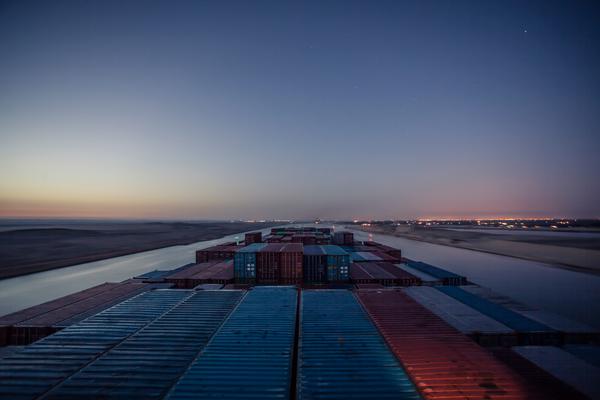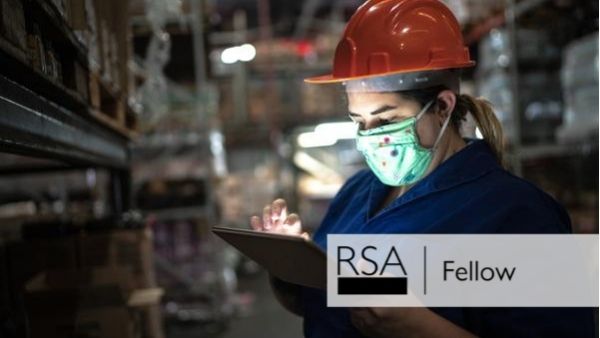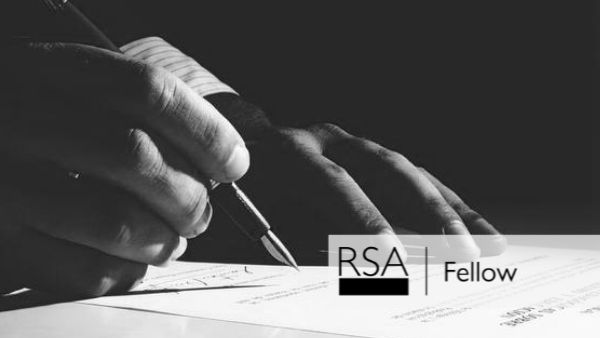In light of recent events in Poland, in a two part blog series, Alexandra Krawiec, our RSA Connector looks back at its history.
In 1959 Richard Nixon, at that time the vice-president of the US, flew to the Soviet Union for the grand opening of the American Exhibition in Moscow. For the purpose of the exhibition, the Americans constructed a mock-up house and fit it in with all the home appliances available in the 1950s US.
To Nikita Khrushchev, the then leader of the Soviets who visited the exhibition, the house seemed far too luxurious to be true. At some point Khrushchev asked Nixon if the house really reflected the living standards of an average American. Nixon affirmed that yes, every American worker could afford the house and the appliances.
The claim appeared so brazenly incredulous to Khrushchev, that he could not contain his anger and allowed himself to utter rude comments in his native Russian, which Nixon could not understand. As a matter of fact, Nixon was telling the truth, slightly sugar-coated, yet truth.
To the Russians, majority of whom lived in harsh Soviet reality, Nixon’s account was offensive to the system, simply - unacceptable. So much so, the Russians seemed to have found it easier to succumb to Khrushchev's delusions than to admit that living standards in Soviet Russia were far below those of the Americans.
This event, known today as The Kitchen Debate, epitomises the stubborn and ideologically motivated blindness to facts on the Soviet side, and the economic chasm between the communist countries and the capitalist West. By some far analogy, today’s situation in some countries, resembles, to a certain extent, the Soviet approach to reality. The multiple benefits brought about by the European Union subsidies, today seem to be shrouded in some post-truth, anti-EU propaganda.
The benefits of international cooperation seem all too good to be true. So much so, that nations take steps to isolate themselves again, and adopt some of the not so long ago condemned, past approaches. Many of the current leaders, particularly in the central and eastern EU, seem to focus more on what divides than on what we have in common, and openly express their deconstructive doubts about the EU. Some, like the British pro-Brexiters, have made claims that alone Britain can do better, be better off than when staying together in the EU. Probable, but rather unlikely.
In 1989, the Berlin Wall was finally demolished, and after decades of repression, Eastern Europe entered a new period of reconstructive transformation. Since then, most of us hoped that the slain monster would never be brought back to life again. However, the current developments in Poland and in other countries may suggest that something went wrong with the society.
It seems that some are already trying to resurrect the monster, attempting to re-introduce some nouveau forme of isolationism. The multifaceted benefits brought about by the European Union are unquestionably of value to those like me, but apparently, not so for the current politicians like Jaroslaw Kaczynski and his proponents. Kaczynski, the leader of the ruling “Law and Justice” party, seem to perceive the EU as a threat, and unrequested external interference.
The advantages of democracy and cooperation, like these regained through Solidarity Movement and sealed during the 1989 Round Table Talks, under PiS are being devaluated, and undermined.
Jaroslaw Kaczynski was born after the WWII and is now approaching 70, so he should remember the bleak reality of repressed freedom and omnipresent fears. Despite his personal experience with dictatorship, he seems to be eager to re-introduce some of the past practices in a modified, updated form. Together with Beata Szydlo, the current Prime Minister, Kaczynski has ambitions to reform Poland more into his liking by overriding some of the recent reforms (e.g. education reform).
Judging by the numbers of his supporters, Kaczynski is a skilful populist, uncompromising. He is an intransigent negotiator consequently trying to implement PiS’s pre-electoral promises, including transformation of the public media into the national media. Kaczynski does not conceal his personal aversion for the former leader of the previously ruling party (PO), Donald Tusk, who was elected for the second term as the President of the European Council.
Poland was the only country to veto Tusk -- the fact that Kaczynski and his cohort still find difficult to accept. As it appears, Kaczynski’s personal problems with Tusk have already taken its toll on the society, and already had serious political repercussions, including the deterioration of the Polish-EU relationship.
Beside the above mentioned, Jaroslaw Kaczynski is a twin brother of the former president Lech Kaczynski. In 2010, together with his wife and other 96 people, including many members of the Polish government, the president died in a tragic plane crash in Smolensk, Russia.
Ever since that disaster, Jaroslaw Kaczynski and many of his supporters, notably the current Minister of National Defense, Antoni Maciarewicz, have been fanatically obsessed with the causes of the catastrophe, which they try to explain with various conspiracy theories. Many proponents of the conspiracy theories are linked to the radical wing of the Catholic church.
They formed an informal movement that is organising highly controversial monthly vigils in remembrance of the victims of the crash, the meetings take place in the streets of Warsaw and in other towns. Because of Jaroslaw Kaczynski’s personal involvement in the vigils, he instigated changes to the law concerning public gatherings, so that now the regular gatherings (those vigils in particular) have a priority over any other gathering, particularly the anti-governmental protests, let alone protests concerning women or LGBT.
Another of PiS plans, besides the ongoing politicization of the Smolensk tragedy, is to introduce changes in the judiciary system, and to distance Polish society from Tusk’s pro-European legacy. PiS is known for their determination. The government officials are known for their commitment, are able to work long hours to achieve their goals.
They worked in secrecy, sometimes literally overnight, keeping journalists and the opposition uninformed, away from their debating chambers. They were scrupulously making amendments to laws, applying corrections suggested by the opposition and consistently proceeding with their plans.
The mishandled investments in reforming the country has serious, long-term implications. PiS is re-reforming education system, attempts to interfere with constitutional laws, limits women’s rights and covers up serious ecological crime (mass loggings of forests including primeval Bialowieza woods). On top of this, PiS is activating large number of police forces to “protect” Smolensk vigils, and spending public funds on endless re-investigations of the Smolensk catastrophe.
These and other developments that have recently taken place in Poland resemble more the Trumpian approach to politics than the values instilled and promoted by the 1980s Solidarity movement. In the light of this, it may be easier to understand why Trump’s visit was so well received in Poland, whereas the EU official Frans Timmermans was treated as persona non grata.
When diplomats and the citizens are disrespected, the taxpayers’ money mismanaged, no wonder people are restless, and many are apprehensive about the future. Saying all that, one needs to have hope that the grass root support for democracy in Poland will win with the majority of PiS electorate.
It is to be hoped that eventually the paralogism of our current rulers will become apparent to the majority, and that current leaders will be replaced with those more responsible, more deserving of the honour.
Related articles
-
All we are saying is give degrowth a chance
Chris Oestereich Sam Bliss
A decade ago, a container shipping worker had an epiphany, and it caused him to question the very basis of his business. Sam Bliss and Chris Oestereich take up the story.
-
Prioritising social value in supply chains
Aoise Keogan-Nooshabadi
The pandemic and the increase in extreme weather events has exposed the fragility of our global supply chains. Meanwhile, new Government procurement policy means a consideration of social value is no longer an optional extra for business. Aoise Keogan Nooshabadi, FRSA, looks at the ethical, practical and economic benefits of buying and supplying closer to home
-
Want to rebuild your life? First prove you’re alive
Lauren Anders Brown
War and forced migrations mean hundreds of thousands of displaced people lack the documents to find work, start a new life, or even prove they exist. Lauren Anders Brown, co-directed Forged, about the Syrian conflict. She argues that we desperately need a universal, non-governmental ID system




Be the first to write a comment
Comments
Please login to post a comment or reply
Don't have an account? Click here to register.